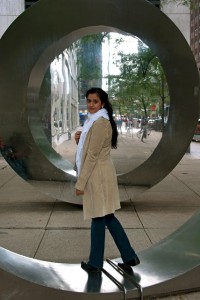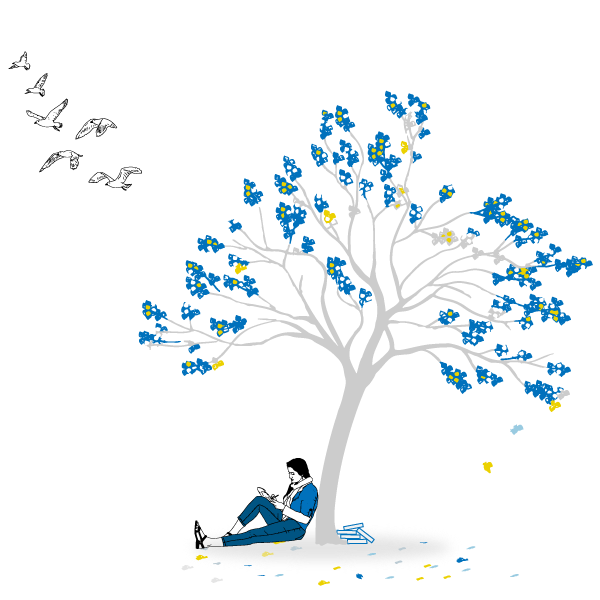A Still Sunday, particularly today.
December 25, 2011.
on criticism, on friendships come & gone, Keats & soul-making.
New York City is asleep although I have been awake for some time.
Silence is that music where we become instruments.
I have never experienced Stillness and silence this grand in New York City as this Sunday.
This is my first Christmas holiday and New Year’s Eve in New York City despite having lived here for over a decade. Usually I have always been “home” this time of the year, whatever that has meant: sometimes Lahore, other times Johannesburg or Durban, most often a farmhouse, my parents’, in California.
Last night I experienced New York City in a whole new manner. I understood why it is the designated setting for so many Christmas themed movies. Filmmakers, photographers, writers…all have attempted, again and again, to capture some charm that hangs in the air despite the crisp, cold winter wind grating the skin not covered in layers. It is not mere sensationalism: there really is something, a reverberation, although we do not know from where it comes. Last night while running errands I stopped by a diner on the Upper West Side to have a strawberry milkshake. It was a New York City moment, the moment that is just between you and the City, encapsulated in an intimacy that can never be articulated with accuracy. Kind of like experiencing a moment of real love.
In the words of F. Scott Fitzgerald, “…From that moment I knew that New York, however often I might leave it, was home.”
~~~~~~~~~~~~~~~~~~~~~~~~~~~~~~~~~~
It is that time of the year again where one starts getting emails or texts and maybe even phone calls from people one hasn’t heard from all year. There are no hard feelings for lack of contact, just time, distance, and different trajectories, focuses, and priorities. Given I am not on fakebook I don’t know these people’s status updates through the course of the year. I am completely cut off from their new favorite song, a bad day at work, which latest movie they saw, wishes and rants. However in one short email or phone conversation, once a year, I gather so much has changed because nothing has changed. Work is okay, at least it pays the bills or I hate my job; yes, things are going wonderful with the significant other or no, I am still single or yes, we decided to get a divorce or I have met a great man or woman; the child or children are or are not doing this and that.
Over the course of years though even this has come to a minimum in my life. Those seeking a casual connecting, like reaching out for a comfy blanket or toy of childhood security, don’t find reaching out to someone like me as satisfying. I can’t echo anything back.
In the aforementioned example I do not mean those friends with whom one can pick up the thread of love whenever and start connecting significant moments as if time was a figment of reality’s imagination. These friends are love and love’s foundation is neither time, nor distance but values and growth. With these friends, even when there is nothing “new” going on in their lives, there is so much new within that it is invigorating to connect again.
That being said I do believe in meaningful exchanges borne out of casual encounters. I met a gentleman Friday night and we discussed contemporary art, New York City, and relationships. We talked about what was important to us. He said all that the Universe demands is to know what is that you want and are you ready to receive it.
Casual does not have to always be extraordinary but neither does it have to be meaningless.
It used to be hard for me to let go long after a connection had faded. I would keep in casual contact through some means. The rationale would be: why not. When you start living for a why instead of why not you don’t have much time for casual.
~~~~~~~~~~~~~~~~~~~~~~~~~~~~~~~~~~
I read an excerpt from Adam Kirsch’s newest book, Why Trilling Matters.
For two generations Lionel Trilling was synonymous with literary criticism. Trilling was uninterested in the traditional prerogatives and responsibilities of criticism.
If Trilling’s essays are not exactly literary criticism, it is because they are something more primary and more autonomous: They belong to literature itself. Like poems, they dramatize the writer’s inner experience; like novels, they offer a subjective account of the writer’s social and psychological environment. And alike all literary works, Trilling’s essays are ends in themselves. This helps to explain why there has never been a Trilling school of criticism. He does not offer the reader findings or formulas, which might be assembled into a theory; he offers what literature alone offers, an experience. It is a kind of experience that today’s serious readers and writers are hungry for. Over the last 10 or 15 years, many of the institutions that once sustained literature in America have changed or disappeared, including independent bookstores and newspaper book reviews…”
[Trilling noted]: ‘Generally speaking, literature has always been carried on within small limits and under great difficulties.’
What sustains writers and readers under those difficulties is, above all, the consciousness of another’s existence. The name of the activity by which readers and writers communicate, by which they make the private experience of reading into the common enterprise of literature, is criticism. And Trilling is the critic who best demonstrates what it means to read seriously—how the encounter with the ideas and attitudes we find in books can help us create our selves.
Trilling shows that the literary life is really the same enterprise that Keats called “soul-making.”
The author asserts we need to return to Trilling given he is no longer a name to conjure with.
I believe we don’t have to go back. We can go forward. Right here, right now, amongst us we have our own Trilling. For some of us it just may well be on an individual level and this person may or may not have achieved the notoriety of Trilling or Gardner yet. In my case, it happens to be an author and friend, Lucy Pollard-Gott. (And I do not use the word “friend” lightly and never have; I am friendly with a lot of people when I so decide but friendship is a serious undertaking. Moreover, since Lucy Pollard-Gott has no idea that while writing this Sunday my brain made the following connections which include her, I don’t want to embarrass her if and when she stumbles upon these words, so I shall not continue too specifically. I wish for everyone who has taken the task of writing seriously to find a connection where criticism and feedback makes one better at the craft for the sake of the craft above all else).
As we (some of us) go into the next cycle of humanity, it is imperative we call out mediocrity, not out of some self-proclaimed elitism or lack of compassion for where another might be but because our collective humanity trembles for real, which by its very nature is nothing short of extraordinary. As we go forward into an era without gatekeepers, we need to be aware of those who are guardians of “soul-making.”
The purpose of criticism ought to be as follows: to make another more receptive to that which is within us.
I offer Keats:
Man should not dispute or assert but whisper results to his neighbour and thus by every germ of spirit sucking the sap from mould ethereal every human might become great, and Humanity instead of being a wide heath of Furze and Briars with here and there a remote Oak or Pine, would become a grand democracy of Forest Trees!
It has been an old comparison for our urging on – the Beehive; however, it seems to me that we should rather be the flower than the Bee – for it is a false notion that more is gained by receiving than giving – no, the receiver and the giver are equal in their benefits. The flower, I doubt not, receives a fair guerdon from the Bee – its leaves blush deeper in the next spring – and who shall say between man and woman which is the most delighted? […] let us open our leaves like a flower and be passive and receptive – budding patiently under the eye of Apollo and taking hints from every noble insect that favours us with a visit – sap will be given us… (from John Keats’ letter to John Hamilton Reynolds, 1818)
~~~~~~~~~~~~~~~~~~~~~~~~~~~~~~~~~~
The Universe opened her mouth last night. All those with even casual clairvoyance felt whispers like confetti. However, the Universe likes a dialogue and is not interested in our monologues. In order to have a dialogue we have to listen. There is a universe within that we hush so how can we ever really listen to the Universe hovering around us.
Although I am cognizant that nothing really changes but it is our awareness that makes it so, but perhaps that is all changing the world is after all: becoming more aware.
Reflecting back on the last decade, there is only one way forward: forward.

Image: “Q” by Jamie Berry
A very merry holiday to all. I thank you for your time this past year to read my thoughts that I collect in the Stillness of a Sunday.
~a.q.s.
Note: There will be no time for Still Sundays on January 1st as I will be busy enjoying it. I wish everyone a real new year in 2012. “The new year isn’t a do-over; it’s an opportunity to take your next big step.” ~ Terri Trespicio


Annie, there is so much that deserves comment, reaction, incorporation into one’s thought processes in this post, not least of which is the beautiful and witty photograph “Q” which punctuates your holiday wishes at the end. Thanks so much for sharing it.
I’m reading along, underlining, making marginal notes, adding exclamations and smilies, as usual, when I stumble on my name–how very kind of you to mention me as you did. Truly a surprise and I’m most grateful, especially for your friendship. I could have run to hide at this point, and stayed silent this week, but the urge to comment on your post, as I had planned, won out!
I am struck again, as I was in your post last week, by your deft use of enumeration (in the italicized passage that begins, “Work is okay…”). Your list of the alternative messages that annual contacts with friends yield has tremendous force because it distills those collective voices, while preserving their tone. The device is usually termed either “style indirect libre” or free indirect speech–narrating someone’s thoughts in the style of their speech.
Last week, you juxtaposed two related but contrasting lists to play off what “people” typically do and experience against your own very personal experience of things.
A number of writers are known for building up concrete descriptive detail with long enumerations–Dickens is one. Orhan Pamuk is another that comes to mind, but like you, his lists dig deep into emotional and thematic territory. Clearly, this is a powerful tool in your hands, infused with energy and intelligence.
I must also note the beautiful analysis of the connections with friends always tethered by love, and how the “happenings” that can be shared with such friends are the changes within.
Thanks for sharing the passages from Kirsch’s book about Trilling and from Keats’s letter. As usual with Keats, I think I need to read this over several times before I know what I should be receiving from it! 🙂
Finally, you create so well the scene of your own Christmas movie, an irresistible short-subject called “Annie’s first NYC Christmas, with strawberry milkshake”! Thank you, and Happy New Year!
~lucy
Hey Annie,
I agree with Lucy, your NYC Christmas seems like a movie to me as well 🙂 It is so wonderful that after a very busy fall you have a chance to relax and enjoy the stillness of your home town. Wonderful photo also! Happy New Year Annie!